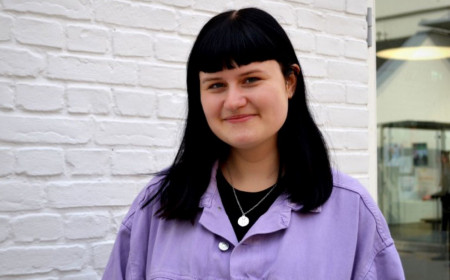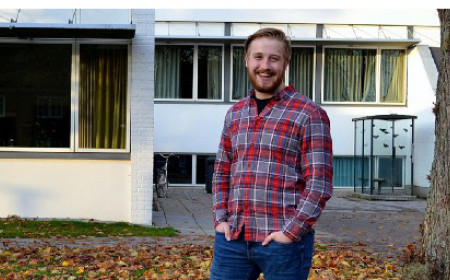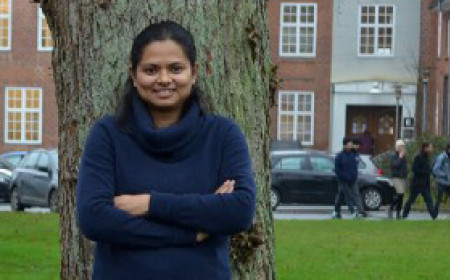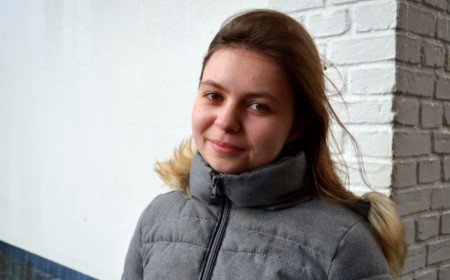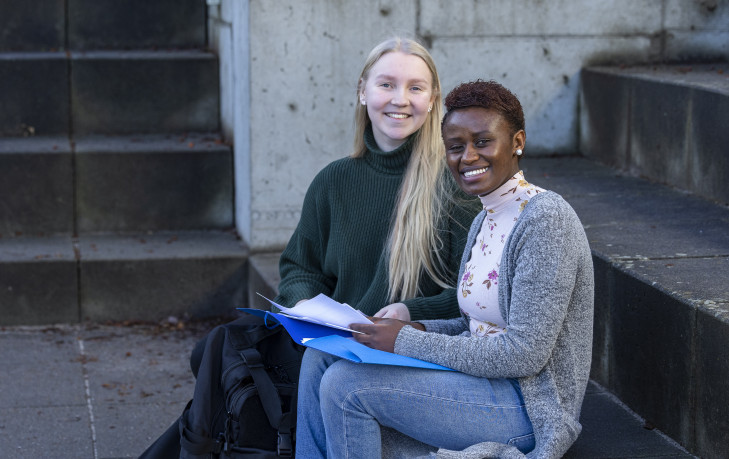Introduction
Join us in Denmark for an exciting opportunity to earn an internationally recognized Bachelor of Education, with a wide range of subjects to choose from. We also welcome Danish-speaking students who select English as their first teaching subject to be part of our international program.
Make the most of your time in Denmark by combining your studies with unforgettable cultural experiences:
- Meet new friends from all over the world
- Learn a new language as you open doors to exciting career opportunities
- Build independence and confidence while living away from home
- Challenge yourself and discover just how much you’re capable of achieving!
International students and Danish-speaking students will study side by side from day one. While your first year will be taught in English, from the second year onwards, lessons will be conducted in Danish, immersing you fully in the local culture.
Open International counselling via zoom
We invite you to open online counselling
It is essential that you participate from the beginning, as there will be a joint presentation.
If you have any log-in problems, please email: acje@ucsyd.dk or skbr@ucsyd.dk
2025
8 October 2.30 PM - 4.00 PM
25 November 2.30 PM - 4.00 PM
16 December 2.30 PM - 4.00 PM
2026
21 January 2.30 PM - 4.00 PM
4 February 2.30 PM - 4.00 PM
25 February 2.30 PM - 4.00 PM
11 March 2.30 PM - 4.00 PM
8 April 2.30 PM - 4.00 PM
5 May 2.30 PM - 4.00 PM
10 June 2.30 PM - 4.00 PM
23 June 2.30 PM - 4.00 PM
Click here to attend a meeting (opens a Zoom meeting)
Onboading meeting for accepted students 23rd of June 2026, 12.30 PM – 13.30 PM. You will receive an e-mail invitation for the online meeting.
Onboading meeting for accepted students 19th of August, 12.30 PM – 13.30. You will receive an e-mail invitation for the online meeting.
Why Denmark?
If you are still considering whether you should choose Denmark as the country of your international study experience, we would advise you to research on the Danish Educational System and consider the following statements:
- Our qualifications are internationally recognized
- We focus on your unique personality and talents
- We promote creativity and innovation
- We provide an ideal balance between theory and practical experience
- Denmark is ranked among the three safest countries in Europe
What will you learn?
Exciting Four-Year Program
The Bachelor of Education is an exciting four-year program that prepares you to teach primary and lower secondary levels in Denmark. You’ll choose three subjects that inspire you, blending theory with hands-on teaching experience for a rewarding career.
International Classroom Experience
In your first two years, you’ll focus on becoming an English teacher while integrating into a diverse international class with students from more than 15 nationalities. You’ll enjoy a vibrant social environment, on Campus Haderslev, as well as in the city, while you study subjects in psychology and education, all taught in English. You’ll also gain real-world experience with your first teaching practice.
Learn Danish
You must live in Denmark and study Danish while being a student at our international teacher education. However, intensive Danish language training is provided in the first year, and you’ll have free access to Danish lessons at Haderslev language center. Read more here
Innovative Learning Approach
Our program in Haderslev emphasizes innovative teaching methods, including blended learning, and fosters a friendly, informal atmosphere that’s perfect for international students. Our syllabus is a mixture of lectures, group work, student presentations, and project-oriented learning.
Exciting Career Opportunities After Graduation
Upon graduating with a Danish Bachelor of Education, you'll open the door to a wide range of career opportunities. You’ll be fully qualified to teach in primary and lower secondary schools across Denmark, including public, private, and international institutions. Plus, as a native language speaker, you have a distinct advantage in securing a position as a foreign language teacher, often more easily than Danish students.
International Recognition and Further Education
The Danish Bachelor of Education degree is internationally recognized, giving you the flexibility to pursue teaching careers across Europe and beyond. Depending on the country, you may need to complete a few additional courses or practical hours to meet specific local requirements. If you’re not diving straight into work, the degree also paves the way for you to pursue a Master’s degree in Denmark or abroad.
Whatever path you choose after graduation, you can be confident that you’re set up for a future full of exciting opportunities and endless potential!
Admission
Did you miss the application deadline?
Don’t worry – there’s still time!
Available places have now been published!
Visit the page and see see if your spot for the International Teacher Degree is still open - Secure it by applying today!
Admission requirements
The admission requirements for international students can include one of the following certificates:
- The European Baccalaureate (EB)
- The International Baccalaureate (IB)
- Zeugnis der Allgemeinen Hochschulreife (Abitur)
- The Option Internationale du Baccalauréat (OIB)
- Baccalauréat Français International (BFI)
- Dansk gymnasial uddannelse (STX, HF, HTX, HHX)
- Another foreign qualifying examination certificate that can be equated with a Danish upper secondary school leaving certificate.
You are also welcome to apply if you are in the final year at secondary school.
To see if your qualifications fulfill the requirements for Higher Education programmes in Denmark, please check the Ministry of Science, Innovation and Higher Education.
In addition to these high school requirements, you must also
- Take up residence in Denmark
Specific requirements
Applicants applying for the International Teacher Education Programme must have an average mark of 7,0 according to the Danish grading scale.
If the average mark is below 7,0, or if you come from a high school not recognized by us, you will have to participate in an online admission interview. Furthermore, if you are just finishing your upper-secondary school in June and do not have the final results yet, you will also have to participate in an online admission interview.
The purpose of the admission interview is an individual screening of your suitability for study in relation to both academics and profession.
When we have assessed your application, you will receive more information on how to book an online admission interview on nemStudie.dk.
Just for information, you also have to attend a guidance interview in addition to the admission interview
English language requirements
English Language Requirements (English at B-level)
The International Teacher Education Programme is taught in English the first year, therefore it is required for applicants to submit proof of English proficiency equivalent at least to English B level in Denmark to enter the program. You must hold one of the following entry examinations:
- A Danish qualifying entry examination
- A Nordic qualifying entry examination
- A qualifying entry examination from the Duborg school/A.P. Møller School
- A qualifying entry examination from International Baccalaureate (from the IB diploma programme)
- A qualifying entry examination from European Baccalaureate (from the “ScholaEuropaea”)
- Applicants holding a Baccalauréat avec Option internationale (OIB) from France with the option
- Americain or Britannique and a passed English subject
- Applicants holding a Zeugnis der Allgemeinen Hochschulreife (Abiturzeugnis) from Germany with the subject English Leistungsfach (LF)/erhöhtes Anforderungsniveau (eA)/Kernfach (KF)/Profilfach/Profilgebendes Fach (PgF)
- A completed high-school diploma/Upper Secondary School Leaving Examination from USA, Canada, Australia, New Zealand, Great Britain, Scotland or Ireland with a passed subject in English.
Please note that the following may also fulfil the requirement of English at B-level:
A completed Danish professional bachelor programme taught in English. The applicant must provide documentation that the programme was taught in English.
A completed university Bachelor’s or a Master's degree taught in English from Denmark, USA, Canada, Australia, New Zealand, United Kingdom or Ireland. The degree must be equivalent to a Danish Bachelor’s or Master’s degree. The applicant must also provide documentation that the programme was taught in English.
Please note that applicants with an English language qualifying examination or degree programme from all other countries than the above-mentioned must submit an English language test which fulfils the above requirements.
We only accept the following English language tests:
- TOEFL ets.org: minimum score 83
- IELTS.org: minimum score 6,5
- Cambridge English: minimum score B2 (English and Listening)
- Oxford Placement Test | Oxford University Press minimum score B2 (English and Listening)
In addition, the following applies:
We do not accept test results that cannot be verified via the test centre’s website.
The test result must not be older than two years from the applications deadline.
You must upload your test result on www.optagelse.dk before the documentation deadline. The application deadline for foreign applicants is the 15th of Marts (12:00 Noon).
We do not accept any other English language test except the above mentioned.
Facing an online admission interview?
If your average grades are under 7, or if you do not know your final average grades yet, you will have to attend an online admission interview. You might think that sounds a bit scary. But an entrance interview is not an exam. It’s an interview and a discussion in which you can tell us why you want to apply for teacher training.
Most interviewees (over 90%) are offered a place after attending an admission interview, which means there is every good chance of you being accepted.
Our concept for pre- and onboarding
Read more about our pre- and onboarding of all accepted students here.
Economy
Fees:
Students who hold a citizenchip from countries within the EU/EAA/Switzerland are not required to pay tuition.
There is a tuition fee for all full-time degree students who hold a citizenship from outside EU/EAA/Switzerland. The tuition fee is approx. EUR 5150 per semester. The price is set by the state and will be adjusted every year.
If you want to learn more about the cost of living in Denmark and accommodation we have collected this information on our page for incoming students. Click here if you want to learn more.
Study environment
The college campus is situated in the centre of Haderslev. The oldest buildings date back to mid 19th century, and our campus is a charming mixture of old and new. You will have around 650 fellow education students.
Haderslev is a medieval town with about 30,000 inhabitants, beautifully situated at the east coast of Southern Jutland on a 12-kilometer-long fjord and surrounded by an extensive lake system, 50 km north of the Danish-German border. There are many leisure time possibilities like sports, concerts, cinema, cafés, etc.
Language
Alongside the usual course offered to all teacher students, you will receive intensive training in the Danish language. The Danish language training is free of charge if you reside in Denmark and must be carried out at the local language centre in Haderslev the first year. After the first year, you can choose a language school in another municipality.
During the first year, all lessons are taught in English.
First teaching subject, English
During the teacher education, you must choose 3 teaching subjects (your specialized subjects).
All our international students must choose English as the first teaching subject. You must be sufficiently fluent to participate in classes where English is the language and be able to become a teacher of English. During the first year, all lessons are taught in English.
Danish students who choose English as their first teaching subject must study all their subjects togther with the international class.
An intensive course in Danish
During the first year you must take an intensive course in Danish alongside your other studies, preparing you to be taught in Danish from your second year.
If you already live in Denmark, you must be aware if you can be offered free Danish lessons, as it is only free for up to 5 years after you have arrived in Denmark. At study start you must have at least 3 years left of this offer, in order to finish learning Danish for free. After 5 years you must pay for your lessons yourself and the price is app. 20,000 DKK per semester.
If you have any questions in relation to the above, you can contact Haderslev Sprogcenter - Dansk i centrum as your training in the Danish language will be held here. For more information on Danish language education, you can visit Danskuddannelse til voksne udlændinge m.fl. | UddannelsesGuiden (ug.dk).
At speakdanish.dk you will find a few links to online Danish lessons so you can start in advance.
If you need further information which is not provided in English, you can use the automatic translator from online translations.
Become a student for a day
Take the opportunity to visit us at Campus Haderslev and follow an ordinary study day along with the current students, so you can get a sense of what the lectures and the educational environment are really like. During the day students and teachers are available for a chat. You can ask all the questions you need answers to.
For more information about your options, please do contact us (email skbr@ucsyd.dk). We are always ready to help. We look forward to meeting you!
Contact us
Do you have any questions? Please contact us
Contact our international department
Contact our team of counselors
vejledning@ucsyd.dk
7266 2250
Open International counselling via zoom
We invite you to open online counselling
It is essential that you participate from the beginning, as there will be a joint presentation.
If you have any log-in problems, please email: acje@ucsyd.dk or skbr@ucsyd.dk
2025
8 October 2.30 PM - 4.00 PM
25 November 2.30 PM - 4.00 PM
16 December 2.30 PM - 4.00 PM
2026
21 January 2.30 PM - 4.00 PM
4 February 2.30 PM - 4.00 PM
25 February 2.30 PM - 4.00 PM
11 March 2.30 PM - 4.00 PM
8 April 2.30 PM - 4.00 PM
5 May 2.30 PM - 4.00 PM
10 June 2.30 PM - 4.00 PM
23 June 2.30 PM - 4.00 PM
Click here to attend a meeting (opens a Zoom meeting)
Onboading meeting for accepted students 23rd of June 2026, 12.30 PM – 13.30 PM. You will receive an e-mail invitation for the online meeting.
Onboading meeting for accepted students 19th of August, 12.30 PM – 13.30. You will receive an e-mail invitation for the online meeting.
